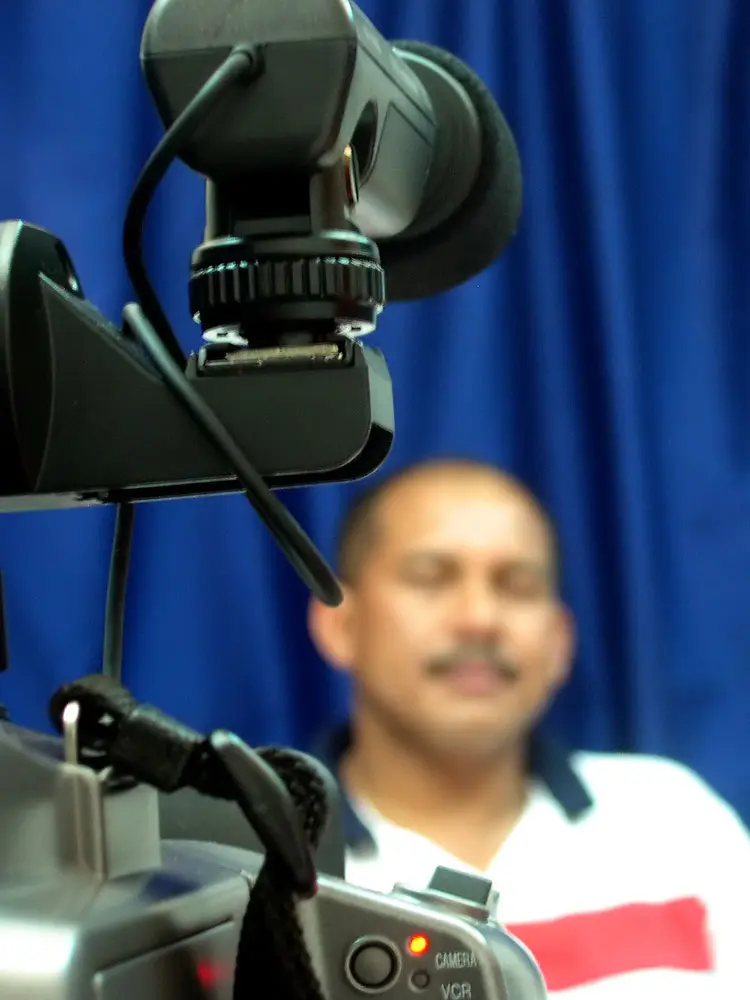Top tools and software used for legal video depositions today
Wiki Article
The Value of Lawful Video Depositions in Modern Legal Services: What You Need to Know
Lawful video clip depositions have ended up being important in today's legal landscape. They provide a multidimensional sight of witness testimonies that traditional transcripts merely can not match. By capturing both non-verbal and spoken communication, these depositions boost the general understanding of a witness's credibility. The efficiency of video clip depositions pivots on different factors, including conformity with lawful requirements and ideal methods. Discovering these aspects reveals their real significance in contemporary lawful servicesWhat Are Legal Video Depositions?
Lawful video clip depositions act as a crucial tool in the litigation process. They entail recording witness statements in a video clip style, capturing both spoken and non-verbal communication. This technique enables lawyers to record the temperament, expressions, and responses of witnesses, providing a richer context for the testament. Typically conducted in a controlled environment, these depositions are led by attorneys who ask questions while a stenotype reporter records the discussion. The resulting video can be critical for test preparation, as it makes it possible for lawyers to examine the reputation of witnesses and improve their techniques. In addition, legal video clip depositions can be made use of in different lawful contexts, varying from civil conflicts to criminal situations. The aesthetic and auditory components of video clip depositions boost the discussion of proof, making it a necessary part in the modern-day legal landscape. Overall, they add considerably to the efficiency and performance of lawful procedures.
Advantages of Video Depositions Over Conventional Approaches
Video clip depositions provide various benefits contrasted to standard methods of taking witness statements. One significant benefit is the capability to record both aesthetic and audio elements, giving a more detailed record of the witness's statements. This dual format boosts quality and permits lawyers to reference particular subtleties throughout trial prep work. In addition, video clip depositions assist in remote participation, making it easier for witnesses who may be not available for in-person looks due to geographical restrictions or health issues.Moreover, video clip depositions can quicken the overall deposition process, reducing the moment and prices related to travel and logistics. They additionally enhance access, as recorded depositions can be easily shared amongst legal teams and referenced any time. This convenience adds to much better situation monitoring and prep work. Overall, video depositions stand for a modern, reliable method to collecting witness statements, straightening with the developing demands of the lawful occupation.The Duty of Body Language and Tone in Testimonies

In legal video clip depositions, body movement and tone play vital functions in conveying a witness's reputation and dependability. Nonverbal cues can offer insights right into a witness's mood, affecting just how their testament is viewed. Comprehending the influence of these aspects is necessary for jurors and lawyers alike when evaluating the dependability of a statement.
Nonverbal Interaction Insights
While spoken interaction is often emphasized in legal testimonies, nonverbal cues such as body language and tone play a vital duty in conveying reliability and emotion. Onlookers of depositions might keep in mind that a witness's stance, gestures, and faces can substantially affect assumptions of integrity. Regular eye contact may signify confidence, while avoiding gaze might recommend deceit or pain. In a similar way, the tone of voice-- its volume, pitch, and pace-- can pass on feelings of genuineness or uncertainty. Lawful experts should be attuned to these nonverbal signals, as they often give important context that complements talked words. Comprehending these subtleties can improve the effectiveness of depositions and affect the outcome of lawful proceedings.Psychological Tone Impact
The psychological tone communicated throughout lawful statements considerably affects just how a witness is viewed. Body language, singing inflections, and facial expressions play crucial roles in shaping the narrative of a testimony. A witness showing self-confidence through consistent eye call and a calm tone can instill a sense of dependability and interaction. Conversely, indications of stress and anxiety, such as fidgeting or a shaky voice, might lead to hesitation concerning their account. The subtleties of psychological expression can influence the analysis of facts, making it vital for lawful experts to recognize these signs. In video depositions, the aesthetic and acoustic elements incorporate, emphasizing the relevance of psychological tone in conveying genuineness and truthfulness within the legal process.Credibility and Reliability
A crucial consider developing credibility and credibility during testaments depends on the witness's body movement and tone of voice. Viewers often depend on non-verbal cues-- such as eye contact, position, and gestures-- to assess a witness's sincerity. For circumstances, a witness who maintains eye get in touch with and shows open body movement might be regarded as even more reliable and honest than one who avoids eye get in touch with or shows up shut off. Additionally, intonation plays a necessary role; a steady, tranquil tone can enhance the reliability of the testimony, while variations in pitch or quantity might raise doubts. Eventually, the combination of body language and vocal tone significantly influences how a witness's statements are obtained and interpreted get more in a lawful context.Finest Practices for Conducting Video Clip Depositions
Carrying out video depositions needs mindful preparation and implementation to ensure a clear and reliable discussion of statement. First, it is essential to select a quiet, well-lit location to decrease disturbances and safe optimal video top quality. The devices ought to be tested ahead of time, consisting of video cameras, microphones, and lighting, to prevent technical problems during the deposition.Next, events included should review the style and treatments in advance, making certain that everybody comprehends their functions. The deponent should be oriented on the process, including just how to react clearly and concisely.Additionally, maintaining a specialist behavior throughout the session is important. This includes avoiding talking over one another and validating that all concerns are guided suitably. Finally, it is critical to tape the deposition in a format that permits easy playback and evaluation, protecting the honesty of the testimony for future use.Legal Considerations and Conformity Issues
Just how do legal considerations and compliance issues impact the effectiveness of video clip depositions? Attorneys have to navigate a complex landscape of policies, guaranteeing that video depositions comply with jurisdictional rules and criteria. Conformity with regulations worrying privacy, approval, and videotaping methods is necessary. As an example, obtaining explicit permission from all events entailed is necessary to avoid lawful repercussions.Additionally, the admissibility of video evidence in court can rest on conformity with procedural requirements. Making sure that the devices utilized meets technical criteria is likewise crucial, as low quality can undermine the deposition's reliability.Moreover, lawyers need to understand any kind of certain state laws that control video clip depositions, as these can vary greatly. Failing to attend to these considerations can not just endanger the honesty of the deposition however additionally affect the overall case technique, eventually influencing the client's legal outcomes.Just How Video Depositions Effect Court Understanding
While video depositions can function as powerful devices in lawful procedures, their impact on court perception is significant. The aesthetic and acoustic elements of video recordings offer jurors with an extra detailed understanding of witness behavior, trustworthiness, and emotional responses. This multimedia method can boost the jurors' capability to evaluate the integrity of testament compared to traditional text-based transcripts.Moreover, video depositions enable jurors to observe body language, tone of voice, and face expressions, every one of which can influence their interpretation of the witness's statements. The existence of a witness on display can humanize them, cultivating compassion and link, which might sway jurors' opinions. Alternatively, a witness that appears unreliable or evasive on video might bring about negative assumptions that affect a jury's decision. Eventually, the dynamic nature of video clip depositions plays a crucial role in shaping exactly how jurors translate evidence and reach their decisions.The Future of Video Depositions in Legal Method
As developments in innovation continue to reshape the legal landscape, our website the future of video depositions is positioned for considerable advancement. Technologies such as expert system, online reality, and enhanced video clip conferencing devices are anticipated to enhance the deposition process and improve availability. Attorneys may use AI-driven analytics to examine witness reputation and instance stamina more effectively.Moreover, the integration of virtual truth might enable juries to experience immersive simulations of depositions, offering deeper context and understanding. In addition, the fad investigate this site toward remote depositions is likely to linger, offering greater versatility for lawyers and customers alike.As remote work ends up being increasingly normalized, video clip depositions will likely come to be typical method, decreasing expenses and time restrictions connected with typical methods. On the whole, these technical improvements promise to enhance the performance, performance, and access of video clip depositions in lawful practice, eventually transforming exactly how attorneys plan for test.Regularly Asked Concerns
Just How Much Do Legal Video Clip Depositions Typically Cost?

Can Video Clip Depositions Be Utilized in Any Type Of Kind of Instance?
Video clip depositions can be utilized in various kinds of situations, including civil, criminal, and family law. Their versatility allows attorneys to existing witness testaments successfully, adapting to the details demands of various legal situations.What Equipment Is Required for a Video Deposition?
To conduct a video clip deposition, crucial equipment consists of a top quality electronic camera, microphone, illumination, and a dependable recording device. In addition, a computer system with editing software might be required for post-production and formatting the final video clip.For how long Does a Normal Video Clip Deposition Last?
A typical video deposition lasts between 2 to four hours, depending on the intricacy of the case and the variety of inquiries positioned. Extensive sessions may happen, however breaks are generally integrated for individual comfort.

Are Video Depositions Admissible in Court?
Video clip depositions are normally admissible in court, provided they follow legal requirements and guidelines of evidence. Their usage enhances clarity and maintains witness testimony, assisting in the judicial process throughout hearings and tests. Lawful video depositions have actually come to be crucial in today's legal landscape. In addition, lawful video clip depositions can be utilized in various legal contexts, ranging from civil conflicts to criminal situations. Furthermore, video depositions facilitate remote engagement, making it much easier for witnesses who might be not available for in-person appearances due to geographical restrictions or health and wellness issues.Moreover, video clip depositions can speed up the total deposition process, minimizing the time and costs connected with traveling and logistics. Making sure that the tools made use of satisfies technological requirements is likewise essential, as bad top quality can weaken the deposition's reliability.Moreover, lawyers must be conscious of any kind of particular state legislations that regulate video depositions, as these can vary significantly. Additionally, the pattern towards remote depositions is most likely to persist, providing higher adaptability for lawyers and clients alike.As remote work ends up being progressively stabilized, video clip depositions will likely end up being basic method, lowering prices and time restraints associated with traditional methods.Report this wiki page